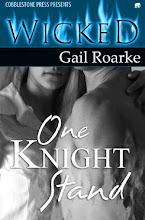If you've been a reader (or a writer) of genre fiction for any length of time, I'm sure you've heard it. "Science fiction--or fantasy, or mystery, or romance, or [insert genre here]--isn't real literature."
But what is real literature? I think most people would agree that Shakespeare qualifies--and Shakespeare was writing for a living, and that meant keeping the crowd entertained. It also meant keeping the powerful people of his day happy. That meant writing plays that wouldn't offend or insult powerful people who could make trouble for him, and it meant writing plays that would keep the crowds entertained--crowds who were paying good money to be entertained and expected their money's worth.
Was he writing for the ages? Hardly. Charles Dickens, another literary great, wrote serial stories for publication. He wrote fast and he wrote voluminously. There was no time to ponder the literary merits of his stories. He had to concern himself with making sure the customers who bought newspapers containing his tales felt satisfied with their purchase day after day.
Another point to consider is that what is often viewed as "literature" is really simply another genre. If you're writing "slice of life" stories about tortured English professors having mid-life crises and affairs with their students, or vignettes that eschew plot as a middle-brow contrivance...I hate to tell you, but you are not creating literature. You're writing in a genre as specific, as structured, as anything in science fiction, fantasy, mystery or romance.
Real literature, great literature, can emerge from any genre--and does. Science fiction and horror novelist Dean Koontz wrote once that "Not all popular novelists are great, but all great novelists are--sooner or later--popular." He's right. Before your fiction can entertain generations to come, it has to entertain today's readers. Shakespeare, Dickens and other greats produced classics of literature--but they wrote to entertain their readers first and foremost. If you can't do that, your works won't last to be discovered.
Groundhog Day…And I Don't Mean The Movie
-
NEWS FLASH—MONDAY, FEBRUARY 2, PUNXSUTAWNEY, PENNSYLVANIA: PHIL WILL
EMERGE FROM HIS BURROW TO PREDICT WHEN WINTER WILL END. NO SHADOW…NO MORE
WINTER. ...
4 days ago









I completely agree. Jane Austen wrote the chick lit of her day. And--have you noticed? Stephen King is now getting published in the New Yorker. We've been having a discussion of the whole genre thing over on my blog http://annerallen.blogspot.com
ReplyDeleteStephen King is also being taught in college literature courses now, too. Will he become one of the iconic writers of history? It's still too early to tell, but it's entirely possible--because he made the first cut: he was and is wildly popular with readers.
ReplyDelete